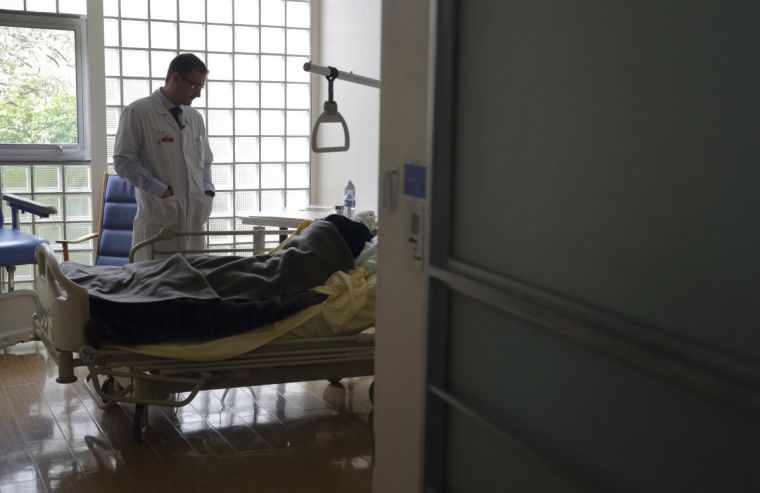Fiona Bruce: Assisted dying Bill is 'a dangerous counsel of despair'

Polling shows that large numbers of people are concerned about how they and their loved ones will be cared for and treated at the end of their lives.
Two good recent examples of this are surveys by ComRes (April 2015) and Marie Curie Cancer Care (March 2015). People are particularly concerned about pain, loss of dignity and not having any input into their care or having their wishes ignored.
For example, although a significant majority of people would prefer to die at home, this is not currently being achieved. Most of the half million people who die every year in the UK do so in hospital, not in palliative care settings.
Part of the reason why people have these concerns is that while modern medicine and advanced technology are extending life expectancy, they are not making such good progress in extending healthy life expectancy.That is to say, for many people the result of a longer lifespan will be more time spent coping with chronic illness or infirmity in old age. At the moment we do not have the capacity to give excellent end-of-life care to all those who need it.
For some people this is considered an argument in favour of assisted suicide. I cannot agree. This is a dangerous counsel of despair. How can we introduce assisted suicide as a "choice" when for too many terminally ill patients, there may be no alternative option of excellent end-of-life care available?
A key concern for many opponents of assisted suicide is that people's decisions are always made in a context, in a unique mix of expectations and attitudes and assumptions. We do not simply make choices as free-floating super-rational agents; our autonomy is not absolute or unaffected by what is going on around us. If the context of someone's "choice" of assisted suicide is far from ideal hospital surroundings, it is impossible to regard that as a free and un-coerced choice.
The fact is that good palliative care is expensive, whereas ending a patient's life is not. There is going to be substantial funding pressure on end-of-life care (as with most parts of the NHS) for the foreseeable future, and for most people their most intensive use of the NHS is in the last few months of their life.
This is emphatically not an argument for underfunding end-of-life care – indeed, it needs much better funding – but rather pointing out that the availability of killing as a treatment option would be an incredibly dangerous idea, given this context. Will we be able to tell the difference between a patient who really wants to die and one who is aware of the cost of their end-of-life care and doesn't want to be a "burden"? No advocate of assisted suicide has ever been able to explain satisfactorily how they would tell the difference.
The mere existence of the option of ending patient's lives would always affect funding decisions. There is surely a danger of a growing resentment of those who choose not to die, not only among the public but among medical staff and hospital administrators, and a subtle but strong pressure on people approaching those vital months to do the "decent" thing.
This is not mere scaremongering. A prominent supporter of euthanasia and assisted suicide, Baroness Mary Warnock, claimed just a few years ago that "If you're demented, you're wasting people's lives – your family's lives – and you're wasting the resources of the National Health Service". She went on to say: "I feel there's a wider argument that if somebody absolutely, desperately wants to die because they're a burden to their family, or the state, then I think they too should be allowed to die...there's nothing wrong with feeling you ought to do so for the sake of others as well as yourself."
Britain is ageing. Half of the population is aged 40 or over. On current trends the median age – that is, the age at which half the population are older – will rise still further in the next two decades, from 40 years to 42, while one in six of us are aged over 65. The general ageing trend is expected to continue well into the middle years of this century. We are going to need a better response to the difficulties of old age and terminal illness than premature ending of lives, such as that of the excellent Cheshire-based End of Life Partnership, of which St Luke's Hospice is a part, which works in my constituency supporting those coming towards the end of their lives – and their families – in a holistic way: physically, emotionally and relationally.
From the opening of St Christopher's in London in the 1960s, widely thought to have been the first purpose-built hospice, Britain has been a world-leader in palliative care, but we have a lot more still to do, as the innovative and leading work of the End of Life Partnership demonstrates. Unbelievably, NHS involvement is hospice care is severely lacking and the hospice movement is heavily dependent on charitable giving. Demand for hospices does not meet supply.
Why are we even thinking about helping a handful of people to die when we have so much more to do to helping huge numbers of ageing, sick or disabled people to live as well and as comfortably as they can? Changing the law would mean a radical setback in our creation of a society that offers assisted living, not assisted dying.
If you have any concerns and want to contact your MP about the Marris assisted dying bill (No2) please use the website www.notoassistedsuicide.org.uk.
Fiona Bruce is Conservative MP for Congleton.











